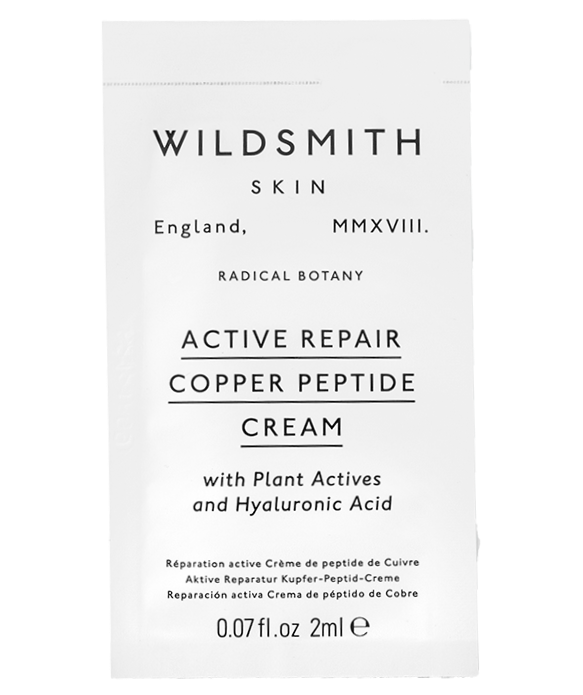Is the old adage “beauty is only skin deep” about to be turned on its head? Nicola Moulton examines the intertwined relationship between our mental wellbeing and how we look – and discovers new schools of thought linking a positive frame of mind to healthy, beautiful skin
In Roald Dahl’s The Twits, right before Mrs Twit memorably serves her husband worm spaghetti, there’s a musing on what it means to look beautiful. “If a person has ugly thoughts, it begins to show on the face,” writes Dahl. “And when that person has ugly thoughts every day, every week, every year, the face gets uglier and uglier until it gets so ugly you can hardly bear to look at it.” Conversely though, “A person who has good thoughts cannot ever be ugly… if you have good thoughts they will shine out of your face like sunbeams and you will always look lovely.”
This, of course, was bad news for mean old Mrs Twit – and countless other examples of villainous anti-heroines in children’s stories, from ugly sisters to wicked stepmothers. In fact, as children, the link between how you think and how you look couldn’t be plainer. But as adults, we seldom make such a strong connection between our inner thoughts and outer beauty – which is surprising, given the increasing evidence that the link is there.

“Our skin often ‘thinks’ before we do,” says the anthropologist and paleobiologist Nina Jablonski, author of Skin: A Natural History. “It can react to stimulus, leaving us with goosebumps, sweaty palms or red faces, even before we can identify the cause.” Jablonski believes that in the future “communication through and with the skin” through virtual reality, skin sensors and beyond will transform our skin/mind connection, allowing us to reach a new understanding of the rich and fascinating relationship between the two.
And, in fact, there are some signs that the interplay between skin health and mental health is already gaining momentum. The #skinpositivity movement (15,000 hashtags on Instagram and counting) is an online home for sufferers of acne, rosacea, scarring and other skin conditions who share not only recommendations of treatments and products, but raw and unfiltered images of their complexions with the aim of removing the stigma around troubled skin which can lead to feelings of negativity and low self-esteem.
But skin problems or not, the truth is that for all of us, skin is an emotive subject. The neuroscientist, medical doctor, executive advisor and author of The Source: Open Your Mind, Change Your Life Dr Tara Swart confirms that “because of the complex and intimate connection between the brain and body, our frame of mind affects everything from posture to skin condition and facial structure”. This, she explains, has a huge impact on how other people perceive us. For example, she says, “Dark circles around our eyes from poor sleep have an impact on people’s first impressions of how capable and resilient we might be, even if this is only at a sub-conscious level.”

So how we can use this skin/mind connection to our advantage? Experts believe that the next evolution of the skin positivity movement will go beyond the realm of addressing skin concerns and into a wider context where a positive mental attitude is adopted by everyone as part of their skincare regime, not just those with problems to fix. “Our skin is something we engage with every day, whether it’s a quick splash of cleanser in the morning or a moment of reflection and a soothing dab of face cream at night. It’s something you should enjoy and feel good about,” says dermatologist Dr Justine Hextall.
If we’re all agreed that good skin is about more than simply what’s happening on the surface, what could this mean for how we use our skincare products? So much thought goes into the ingredients, the texture, the results of a face product – but how you feel when you use it could be another whole untapped area of skincare science. We already know, for example, that performing certain massage strokes when applying face cream can be scientifically proven to improve its benefits; perhaps adopting a particular mindset or affirmation when applying could enhance the outcome, too?

Of course, some say the beauty industry is built on the power of positive thinking – the naysayers who talk about “hope in a jar” have always maintained that there’s a huge helping of blind faith at the bottom of every face cream. But the fact is, we have so much clinical evidence for the ingredients we use – from retinol to resveratrol to copper peptides – that we are more able to choose products backed by science than ever before. If we can combine positive thinking with proven product efficacy, maybe that’s skincare’s next frontier.
And yes, how much a difference the right mental attitude can make is hard to ever analyse. But what we do know (with thanks to the cautionary tale of Mrs Twit) is that being positive and open, kind and good will certainly reap rewards into how you are perceived by others. Coco Chanel, who so often gets the last word in matters of appearance, famously remarked that “at 50 you get the face you deserve”. Surely, if there’s any justice in the world, a positive attitude, helped along by an enthusiastic interest in good skincare, deserves to face the future looking better every day. Explore some of Wildsmith Skins' Moisturisers, Serums and Creams.





